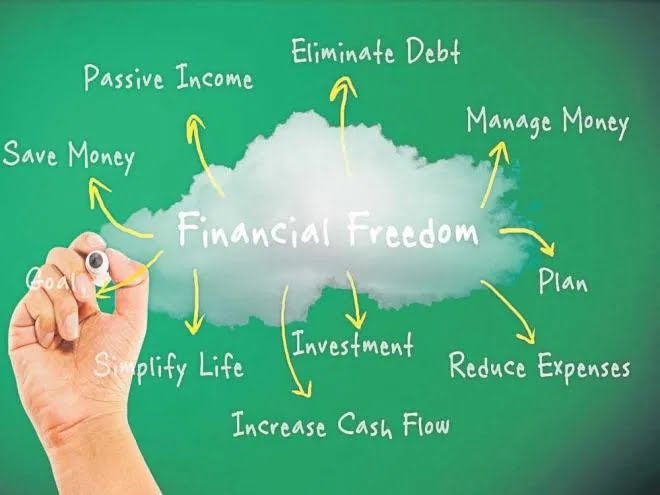Posted by Akanksha Maulik and Deepak Shenoy
A write-up on handling finances mostly begins with statistics on financial literacy, gender inclusion, gender pay parity, the roadblocks etc. But what we would like start with is a question – When will we start owning up to how we are faltering?
We all believe that women are capable of doing and achieving anything they set their mind to. We also believe that women have been pushing the envelope, breaking the glass ceilings and matching shoulders across varied fields – media, corporate, arts, tech etc. We strongly believe in feminism, in equal rights and equal participation. Yet, often by our own choice, many of us are guilty of taking a step back from finance. “He should share the workload but I don’t understand finance, so let him handle it.”
We strongly believe in feminism, in equal rights and equal participation. Yet, often by our own choice, many of us are guilty of taking a step back from handling finances. “He should share the workload but I don’t understand finance, so let him handle it.”
Yes, the environment plays a part. Yes, women have traditionally been kept away from money matters. But we had these barriers in all other areas as well. That did not stop us from participating.
Women living and dealing with patriarchal households have a long way to go. That’s a different, extremely complicated situation which will need a more nuanced solution. For now, we will focus on how important it is for women to be a part of money management too.
Also read: My Ongoing Personal Journey To Financial Literacy As A Woman

It’s The Deep-Rooted Patriarchal Conditioning
“I can do anything but personal finance.” When we say this, the ‘anything’ loses its gravitas. What makes us give up the control of our hard-earned money?
You may call it a bias, an imposter syndrome, cultural and societal influence etc. But dig a little deep and you will realise it has all got to do with what you think. About yourself. About your ability to learn and manage better. Further, it is also the result of years and years of patriarchal conditioning that ensured women do not have access to money except unless they request their husbands to give them some to spend. Now, even when women are breaking barriers as well as the corporate glass ceiling, many of them continue to be unsure about how best to go about their money.
A 41-year-old senior doctor working at a top private hospital in the country we met was just beginning to learn to handle finances. Why? Because her husband just did real estate and not all real estate investors are rich. Or right.
Another woman working in a financial firm told us that her brother handled all her inherited inheritance is being handled by her brother. In her own words, “he understands it better”. The funny part is, this is what the brother had to say: “I know nothing about finance, I am looking for guidance”.
A woman working in a financial firm told us that her brother handled all her inherited inheritance is being handled by her brother. In her own words, “he understands it better”. The funny part is, this is what the brother had to say: “I know nothing about finance, I am looking for guidance”.
That’s the difference. Men have been conditioned to believe that they have no option, so they learn.
Women, on the other hand, are comparatively newer to financial independence and a feminist-movement led world of debates around gender pay parity. And, several women think they have an option.
You Don’t Have An Option
We were addressing the elephant in the room. The elephant brought an army. Let’s meet the next one.
Statistics show that women have longer life expectancy than men. And that means that you could live longer than your spouse, your father or any other male in your family who you are trusting your financial future with.
In such a situation, the survivor learns by experience. And not all experiences are pleasant. So why not learn by choice instead?
You may also face gender pay parity. Which, in simpler terms, is you being equally or better in potential than the male counterpart and yet, are being paid a lower salary.
Now combine that with a longer life expectancy and the maternity break in between. A woman needs to save more with a lesser salary than a man of the same age.
And then one should not rule out the possibility of a “happily ever-never”. In a largely conservative society that still expects women to be married by their “marriageable age”, we cannot rule out the possibility of separation and divorces. This brings us back to the same question – Why wait for worse when you can be prepared already, even for the unwanted?
Investing Rules Are Gender Neutral
The good news is you don’t have to learn or do anything out of the ordinary. It has got very little to do with numbers and more to do with behaviour and discipline. You must have heard this statement- “women are risk averse”. The secret is that it is just a cover-up to admitting that “women are better behaved” in financial matters than men.
At Capitalmind, we believe that financial planning as couples is much more effective than when done in isolation. It is important to know and embrace the fact that both partners have something unique to bring to the table. And when it is your family’s finance, no perspective is a wrong perspective. Through this, we also focus on eliminating the stereotypical notion that women are either not interested or are not rational enough to handle finances.
Also, women can be aggressive risk-takers, just as much as some will be risk-averse. There is just as much financial curiosity in women, and in many cases, far more rationally so.
In fact, the financial (il)literacy infrastructure is also gender-neutral, such that nobody is taught anything about money matters throughout their formational years. This leaves us with an even playing field. In fact, contrary to the patriarchal beliefs many of us hold, personal finance is one of the very few spaces where there is absolutely no gender limitation. Whether you earn money or not, there is no reason why, as a woman, you should not equip yourself and teach yourself the rules of the game, especially because your perspective when it comes to handling your family’s finances is vital.
Whether you earn money or not, there is no reason why, as a woman, you should not equip yourself and teach yourself the rules of the game, especially because your perspective when it comes to handling your family’s finances is vital.
Also read: Where Are The Women In Finance?
Where Do You Begin?
You begin by doing. Forget the literature and the concepts for a while. That will come and be useful when you see value in doing it.
Start with the basics. What am I really looking for? At one level, you want to ensure that if things should go wrong, you have what you need to live. That means an emergency fund. It is absolutely important to buy umbrellas even when the sun is shining.
An emergency fund is at least six months of expenses. That includes rent, living expenses, the kids’ school fees, petrol bills, cash for sundry expenses and everything that is not negotiable. This may sound like a crazy high number, especially when you start. But that’s how it works for everyone. Of course, we will have to start by saving little by little, but it is important to take that first step.
To begin is most important. For money to be there when you need it, is the goal. To do stunts with your hard-earned money is never. Especially if you don’t have your basic needs covered.
Emergency fund is just a starting point. Planning for independence, to never work for income, to generate monthly income from your investments is a longer-term goal. In between, there will be more short-term goals like buying a car, a bike, taking a holiday as soon as the new normal sets in the post-COVID-19 world, starting a business, taking a break, etc. And everything can be planned for. Once you start understanding the approach to take towards money management, investing will no longer look complicated.
Remember, it is less numbers and more behaviour.
Stop Doubting Yourself
Finally, as you start taking control of your finances, stop doubting yourself. There will be a learning curve, there will be some mistakes. Most of these will be what you have already done, rather than the new ones. As you unearth where your money already sits, you will realise what is the good and the bad in investing.
Move on from your mistakes, they can be easily rectified with the right advice. Have patience. The idea is not to know “which mutual fund to invest in?” Instead, it is to understand how best you can put your money to work.
With the right perspective, understanding finances is quite an exciting, enriching and empowering journey to take.
Deepak Shenoy is the CEO and founder at Capitalmind. He has about 20 years of experience in stock markets, and is a guest analyst on CNBC-TV18 and ET Now. He has a knack for simplifying the complex, taking the jargons out and presenting you with information and opinion that is easy to understand. He aims to be a catalyst in making women embrace personal finance and participate in financial decision making. You can find him on Twitter.
Akanksha Maulik is the director of portfolio management division at Capitalmind that handles 250+ managed accounts and 185 Cr+ in assets under management. She is passionate about empowering women to take control of their financial life. Akanksha is candidly open about her own experience with personal finance. She aims at removing the taboo and normalising the money related discussions. You can find her on Twitter.
Featured Image Source: Bankbazaar.com
About the author(s)
Capitalmind is a Bangalore based investment research and wealth management startup. We exist to make great investing easy. We offer strategies across the spectrum - from passive to semi-passive and active portfolios. We believe asset allocation and position sizing are very important for building long term wealth.




